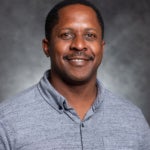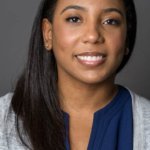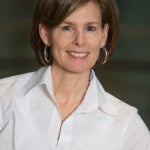While emergency savings offer a financial lifeline for households to cope with the unexpected, 28% of U.S. adults had no emergency savings going into the COVID-19 crisis. The crisis has hit certain populations particularly hard: only about a third or fewer of Black and Hispanic adults, those younger than 30, and those with no college experience say they have a rainy day fund to cover three month’s worth of expenses.
To help families recover from crises — and to build long-term resilience for future ones – policymakers, employers, and financial services institutions need to implement tools that make emergency savings accessible and automatic. Join us as we discuss lessons from behavioral economics, applications in government and financial services, and the realities of financial decision-making at the household level. What emergency savings tools to enable people across America to cope during this economic recovery – and create a stable, equitable savings system that can weather the next one?
Attendees will hear:
- How emergency funds help households cope with the financial challenges caused by the coronavirus, and what those without savings are doing to survive
- Insight into the barriers that face households in the U.S. in accumulating emergency savings
- Examples of how the financial services industry and employers give workers the tools they need to save
- An overview of the policy opportunities that can accelerate emergency savings for households as we emerge from the COVID-19 crisis
The Aspen Institute Financial Security Program’s research is made possible with support from BlackRock, Mastercard Impact Fund, MetLife Foundation, The Prudential Foundation, and the W.K. Kellogg Foundation.
Join us for a lively conversation on June 10—and don’t forget to sign up for the Aspen Institute Financial Security Program Newsletter.
Featured Speakers:
 David Derryck
David Derryck
Chief Impact Officer, SaverLife, @SaverLifeorg
David is a core member of SaverLife’s executive leadership team, leading the development and implementation of SaverLife’s overall strategic direction and holding primary day-to-day operational responsibility for its success.
David has been working in the intersection of business and social impact for over a decade. During that time, he advised, launched, and restructured numerous enterprises. An experienced executive and social entrepreneur, he has led revenue model development, operations, systems development (finance and technology), talent management, strategic partnerships, acquisitions, and sales.
Previously, David was the founder and Principal of Social Impact Ventures, a specialty consulting firm that provides hands-on interim executive management and advisory services to organizations seeking to accelerate performance and maximize impact. He has also held leadership positions at REDF and Juma Ventures. Prior to entering the social enterprise space, David worked in corporate development and co-founded a start-up in international trade. He began his career as a private equity Analyst with Rosecliff, a private merchant bank.
David received his MBA from Columbia Business School and BA from Wesleyan University.

Wendy De La Rosa
Co-founder, Common Cents Lab, @commoncentslab
Wendy De La Rosa is a co-founder of the Common Cents Lab, where she focuses on using behavioral science to help people make better financial decisions. She is also a Ph.D. at Stanford’s Graduate School of Business focusing on financial decision-making. Her award-winning research has been published in Scientific American, PBS Newshour, Forbes, and Tech Crunch. Her TED talk on financial behaviors has been viewed over 4.5 million times across social media. She is also a Forbes 30 Under 30. Prior to starting Common Cents Lab, Wendy helped start Google’s first behavioral economics unit, optimizing product strategy and design, customer retention and engagement, and revenue across 30+ teams. She was also a private equity investor at Goldman Sachs.
 David Newville, @dlnewville
David Newville, @dlnewville
Vice President of Policy & Research, Prosperity Now, @prosperitynow
David Newville is Vice President of Policy & Research at Prosperity Now, where he oversees federal, state and local policy and advocacy work, along with applied research. Previously, David was Prosperity Now’s Director of Federal Policy.
Prior to joining Prosperity Now, he was a Senior Policy Advisor in the U.S. Department of the Treasury’s Office of Consumer Policy. His work focused on emerging payments innovations, consumer financial protection regulations, small-dollar credit products and financial inclusion issues. Before that, he was a Policy Manager at the Center for Financial Services Innovation (CFSI), where he focused on financial services policies for underserved consumers in specific areas such as prepaid debit cards, nonbank financial regulation, small-dollar credit and financial access barriers. He also worked on improving tax, savings, and financial services policies for low- and moderate-income individuals, in the Asset Building Program at the New America Foundation.
Before coming to D.C., David worked on state policy and advocacy issues related to child care, early childhood education, and health care at Illinois Action for Children and was a producer at WBEZ, Chicago Public Radio. David has a Master of Public Policy degree from the Gerald R. Ford School of Public Policy at the University of Michigan and a B.A. from Grinnell College.
 Deborah Winshel
Deborah Winshel
Managing Director, serves as Global Head of Social Impact, BlackRock, @blackrock
Deborah Winshel, Managing Director, serves as Global Head of
Social Impact leading the firm’s initiatives to create social impact on a global scale.
Prior to joining BlackRock, Ms. Winshel was President and Chief Operating Officer of The Robin Hood Foundation, New York’s largest poverty- fighting organization. Known for its rigorous, metrics-based approach to fighting poverty, Robin Hood has
invested over $1.5 billion since 1988 in hundreds of the most effective programs that help lift and keep children, families, and adults out of poverty.
Ms. Winshel was previously the Executive Vice President, Chief Financial Officer and Chief Administrative Officer of the Metropolitan Museum of Art. Prior to working in the non-profit sector, Mrs. Winshel spent more than a dozen years working in New York and London for JP Morgan’s Investment Bank, culminating as a Managing Director advising key corporate clients on a variety of financial, capital markets and strategic issues.
What you need to know:
We Need to Make Emergency Savings As Automatic as Saving in a 401(k)
Short-Term Financial Stability: A Foundation for Security and Well-Being
Learn more
This event is part of the Conversations in Financial Security in Response to COVID-19: How to Triage, Recover, and Stabilize series, an ongoing digital event series hosted by the Aspen Institute Financial Security Program that works to triage the immediate effects of the current pandemic, design solutions allowing households to recover, and address the structural challenges to stabilize financial security at the household level.

